Rocks and minerals -> insulators
Insulators
An insulator is a material that does not easily allow the flow of electric current. Insulators have high electrical resistance, which means they prevent the movement of electric charges. This property makes them useful for a variety of applications, including electrical insulation, protecting against electric shock, and preventing energy loss.
Properties of Insulators
- Electrical Resistance: Insulators have high electrical resistance, which means they inhibit the flow of electric current.
- Non-Conductive: Insulators are non-conductive materials, meaning they do not conduct electricity easily.
- Thermal Insulation: Many insulators also have high thermal resistance, which makes them useful for preventing the transfer of heat.
- Examples: Common insulating materials include rubber, glass, plastic, wood, and ceramic.
Applications of Insulators
Insulators are used in various practical applications, including:
- Electrical Wiring: Insulating materials are used to cover and protect electrical wires, preventing the flow of current to unintended paths and reducing the risk of electric shock.
- Building Construction: Insulators are used as thermal insulation in buildings to reduce heat transfer and improve energy efficiency.
- Electronics: Insulating materials are used to prevent the flow of current between electronic components and protect against short circuits.
Study Guide
To understand insulators better, you can focus on the following key points:
- Define what insulators are and explain their role in preventing the flow of electric current.
- Identify common insulating materials and their properties, such as electrical resistance and thermal insulation.
- Explore practical applications of insulators in daily life, such as in electrical devices, building materials, and safety equipment.
- Discuss the importance of using insulators in electrical systems and the potential risks of not using them.
By studying these aspects of insulators, you can gain a comprehensive understanding of their significance and practical use in various fields.
[Insulators] Related Worksheets and Study Guides:
.◂Science Worksheets and Study Guides Fourth Grade. Rocks and minerals
Study Guide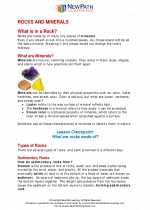 Rocks and minerals
Rocks and minerals  Activity Lesson
Activity Lesson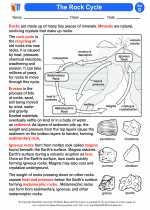 The Rock Cycle
The Rock Cycle  Worksheet/Answer key
Worksheet/Answer key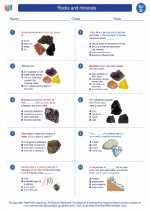 Rocks and minerals
Rocks and minerals  Worksheet/Answer key
Worksheet/Answer key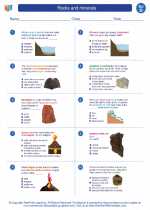 Rocks and minerals
Rocks and minerals  Worksheet/Answer key
Worksheet/Answer key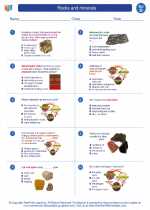 Rocks and minerals
Rocks and minerals  Worksheet/Answer key
Worksheet/Answer key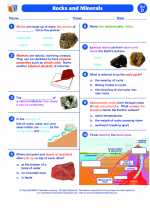 Rocks and Minerals
Rocks and Minerals  Vocabulary/Answer key
Vocabulary/Answer key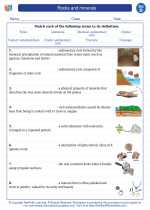 Rocks and minerals
Rocks and minerals  Vocabulary/Answer key
Vocabulary/Answer key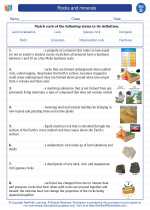 Rocks and minerals
Rocks and minerals  Vocabulary/Answer key
Vocabulary/Answer key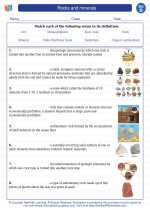 Rocks and minerals
Rocks and minerals  Vocabulary/Answer key
Vocabulary/Answer key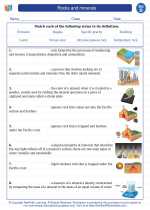 Rocks and minerals
Rocks and minerals 

 Activity Lesson
Activity Lesson
 Worksheet/Answer key
Worksheet/Answer key
 Worksheet/Answer key
Worksheet/Answer key
 Worksheet/Answer key
Worksheet/Answer key
 Worksheet/Answer key
Worksheet/Answer key
 Vocabulary/Answer key
Vocabulary/Answer key
 Vocabulary/Answer key
Vocabulary/Answer key
 Vocabulary/Answer key
Vocabulary/Answer key
 Vocabulary/Answer key
Vocabulary/Answer key

The resources above cover the following skills:
Concepts of Earth Science (SD1, SD2, SD3, SD4)
The student demonstrates an understanding of geochemical cycles by describing that most smaller rocks come from the breaking and weathering of larger rocks as part of the rock cycle.
The student demonstrates an understanding of geochemical cycles by recognizing the physical properties of water as they relate to the rock cycle.